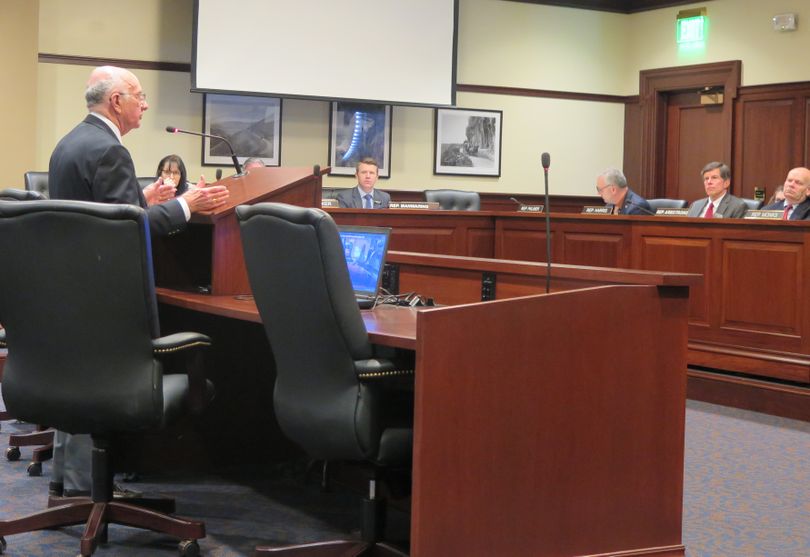Roden on tribal gaming: ‘Let’s put these wars behind us’

Bill Roden, attorney, lobbyist, former state lawmaker and former representative of the Coeur d’Alene Tribe, described the history of gaming law in Idaho, including the enactment by initiative of a state lottery, the passage of the federal Indian Gaming Regulatory Act, and the enactment by voter initiative of Proposition 1 in 2002, which established the current framework for tribal gaming in Idaho and was upheld repeatedly in court.
“The state of the law today is that the machines are constitutional under the court decision,” Roden told the House State Affairs Committee. “If you pass HB 127, it’s interesting, but that does not automatically amend the tribal compact, and it’s the compact that governs what they can do in the state of Idaho, not this particular statute any longer. Its terms were incorporated into the compact. Under federal law, that compact governs our relationship.”
“So unless you’re looking for another court decision, I would suggest that you look to the procedures under the Indian Gaming Regulatory Act and take advantage of the framework which was established to include the state of Idaho and other states in this process, and let’s put these wars behind us at this point,” Roden said. “Let’s go back to the good-faith negotiations which have occurred in the past. We have been negotiating off and on on various provisions in the compacts for many years.”
Roden, who noted that he’s appearing on his own behalf today, told the lawmakers on HB 127, “You don’t need to pass this bill. And if you do pass it, it’s not going to do anything, it’s not going to change anything, because what was in Proposition 1 is now part of the compact, and this bill does not change that.”
Rep. Vito Barbieri, R-Dalton Gardens, questioned Roden on whether he believes the state has the power to examine Idaho tribes’ gaming machines. Roden said the state’s powers are delineated in the tribal compacts. “The constitutionality of the machines is not in question,” he said. “The state has already agreed that what we are doing is valid under the laws of the state of Idaho, and the constitutional provisions, but all of the constitutional provisions – not just the ones that you have selected to point out.” He said there have been instances in which a particular machine used by the tribe was challenged as to whether it complied with the compact, and the Attorney General’s office and the Lottery Commission were presented with documentation, negotiations ensued, and the state determined the machines were legal.
Rep. Heather Scott, R-Blanchard, asked, “So if the state Legislature were to pass a bill to make gambling 100 percent illegal, could you still operate through the compact?”
Roden said that’s not a question he’s necessarily qualified to answer. “I will say this, Class III gaming cannot, if it is absolutely prohibited in a state, then that Class III gaming may not be authorized for the tribe. But that is not the case in Idaho. We do permit Class III gaming, and we do it constitutionally.”
